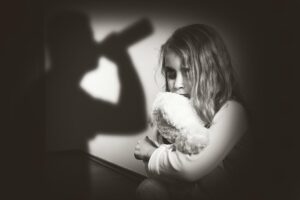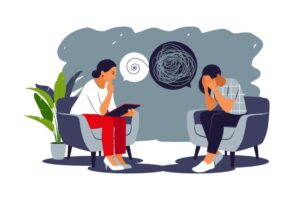Post-Traumatic Stress Disorder or PTSD is a serious mental health condition characterised by severe anxiety, repetitive recall of distressing memories, and nightmares. It is triggered by traumatic events in life that include war or sexual assault. With more than ten million cases in India per year, understanding what PTSD is and seeking PTSD treatment in India
Becomes important.
Life events can be hard to deal with sometimes but some of these can put an individual in such high states of vulnerability and fear, they develop a disorder. There are many examples of such events like being assaulted sexually or physically, chronic domestic violence, war, being bullied, major accidents, sudden loss of loved ones. Not just direct lived experience but indirect encounter with traumatic experiences such as a loved one going through such events or coming up against graphic details of disturbing situations can be risk factors for PTSD. When suffering from PTSD, the individual feels afraid and anxious even when there is no danger. PTSD can be triggered internally or externally—by emotions, thoughts, and
Memories or by people, places, and situations respectively. These triggers can be difficult to perceive and may make it appear like the related PTSD symptoms have emerged
Unexpectedly, but these symptoms seldom occur in an unanticipated manner.
Going through a distressing event can be difficult and most people take some time to
Adjust and cope effectively. However, PTSD symptoms can last for months or even occur years after the traumatic incident has happened. According to doctors, the following are some of the symptoms of post-traumatic stress disorder:
- Reliving the traumatic
- Repetitive memories and nightmares of the
- Activated stress response like increased heartbeat, excessive sweating, shivering, and
- Avoiding thoughts and reminders of the traumatic
- Difficulty falling
- Loss of
- Increased careless or self-destructive
- Having angry outbursts and being irritated more often than
- Having difficulty
- Getting easily
- Repressing memories of the traumatic
- Emotions such as guilt, shame, apprehension, and anger are
- Feeling disconnected from family and
- Being unable to enjoy activities that used to be
- Difficulty feeling positive emotions likes happiness and
As is the case with most distressing incidents in life, time heals the wounds. In case the symptoms are persistent and hamper a person’s functioning in individual, social, or occupational matters, attention needs to be given to remedy the issue. As advised by professionals, the above-mentioned symptoms should last for more than month to be assigned under post-traumatic stress disorder.
What Causes PTSD?
According to research data, more than 60-80% of people experience significant distressing events at some point of their lives. Around 10% of such people develop PTSD. These changes are often attributed to individual differences in hormonal levels,
Neurotransmitters in the brain, and other biological differences that very among individuals.
Patients of PTSD are also at risk of developing disorders such as anxiety, depression, and substance use.
When to See a Doctor?
The general advice of medical professionals, when it comes to mental health disorders, is that if the symptoms are causing significant distress and are affecting the individual’s day- to-day life, professional help should be sought. The Diagnostic and Statistical Manual of Mental Disorders outlines the exact criteria for diagnosing and individual with post-traumatic stress disorder. PTSD treatment in India is available and accessible as one can visit a mental health professional via online as well as offline means.
What PTSD treatment in India Looks Like?
On the first visit, the individual can expect to have a thorough history to be recorded by the medical practitioner. A series of exploratory questions will be presented to gain better insights. Further, a full-fledged plan will be charted tailored to the need of the individual.
The treatment can involve either psychotherapy or medications or both. Cognitive
Behavioral therapy, Eye movement desensitization and reprocessing and Exposure and
Response prevention is some of the most commonly used psychotherapist with clients. Doctors might also prescribe medications like antidepressants and anxiolytics.
Conclusion
Post-traumatic stress disorder is debilitating condition to live with. However, this condition is often seen to have a good prognosis with clients even returning to completely normal lifestyles. Although it may seem daunting to reach out for help initially, it is the right step towards an improved and happier life.
Going through this oftentimes overwhelming experience, support from loved ones and being a bit gentle towards oneself can make a world of difference. It is also important to know that PTSD treatment in India can be successfully tackled and can lead to good outcomes.
It is crucial to take note that PTSD can be prevented by providing psycho-education to people and helping them come up with effective stress management techniques.




